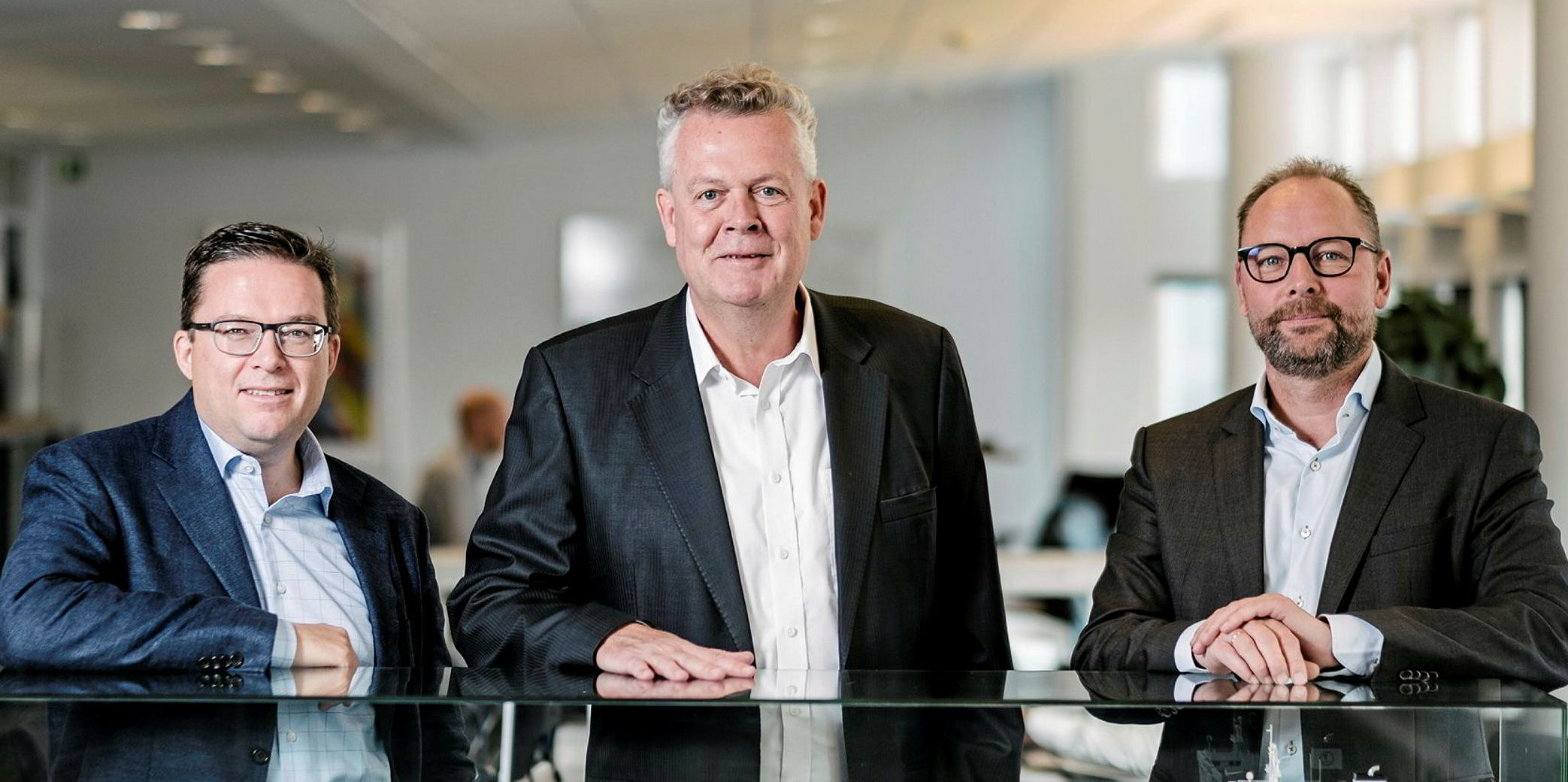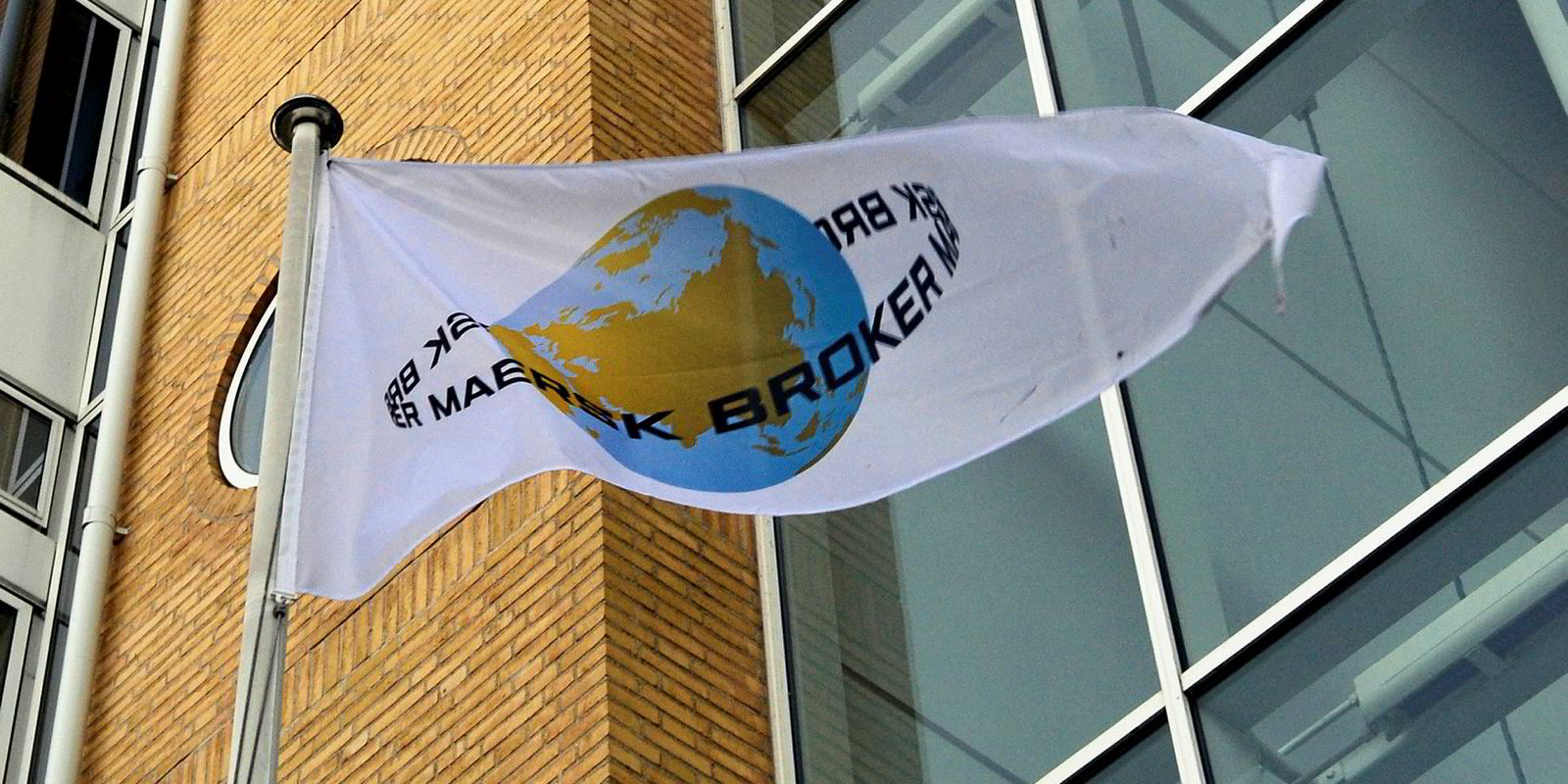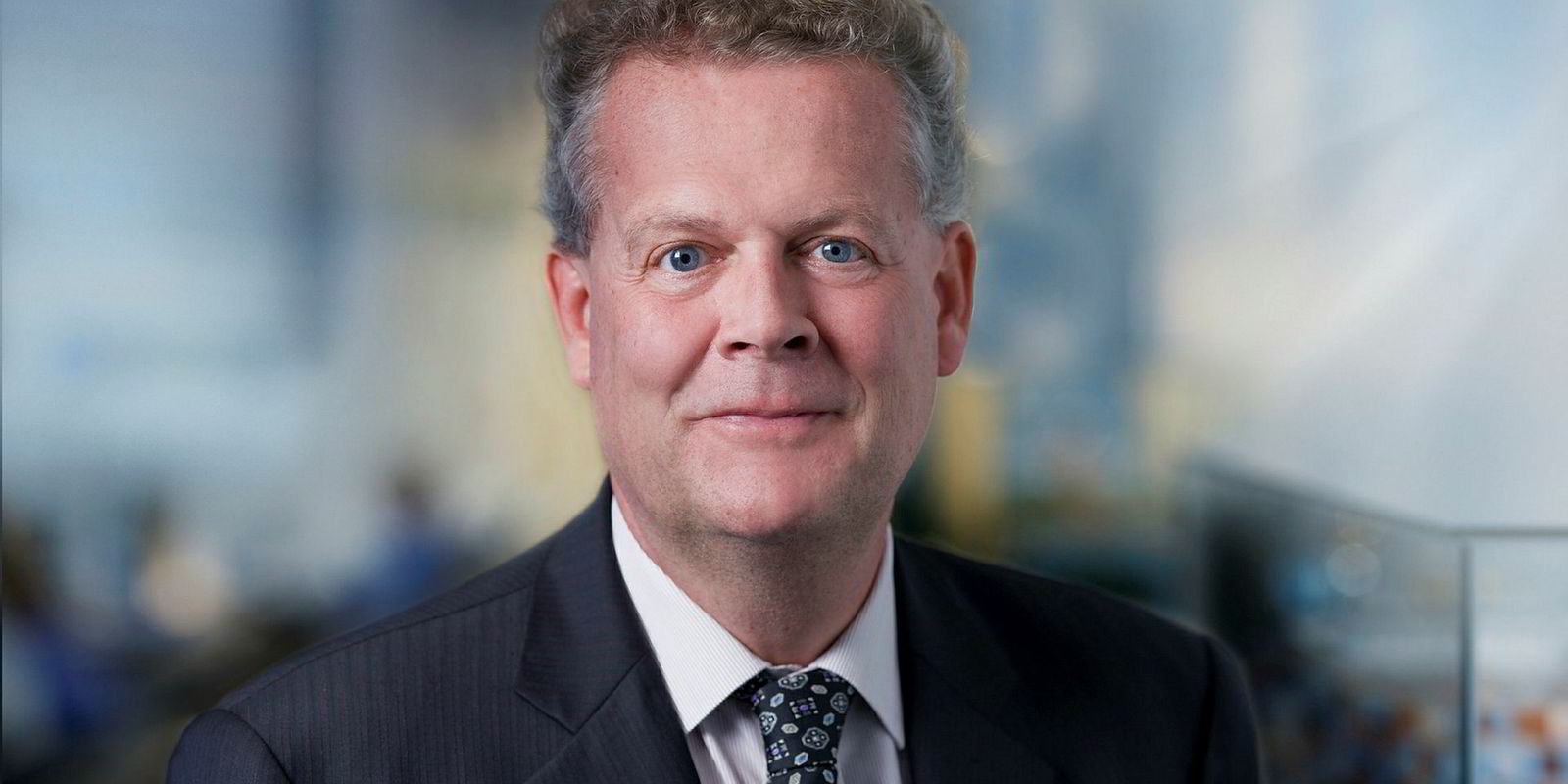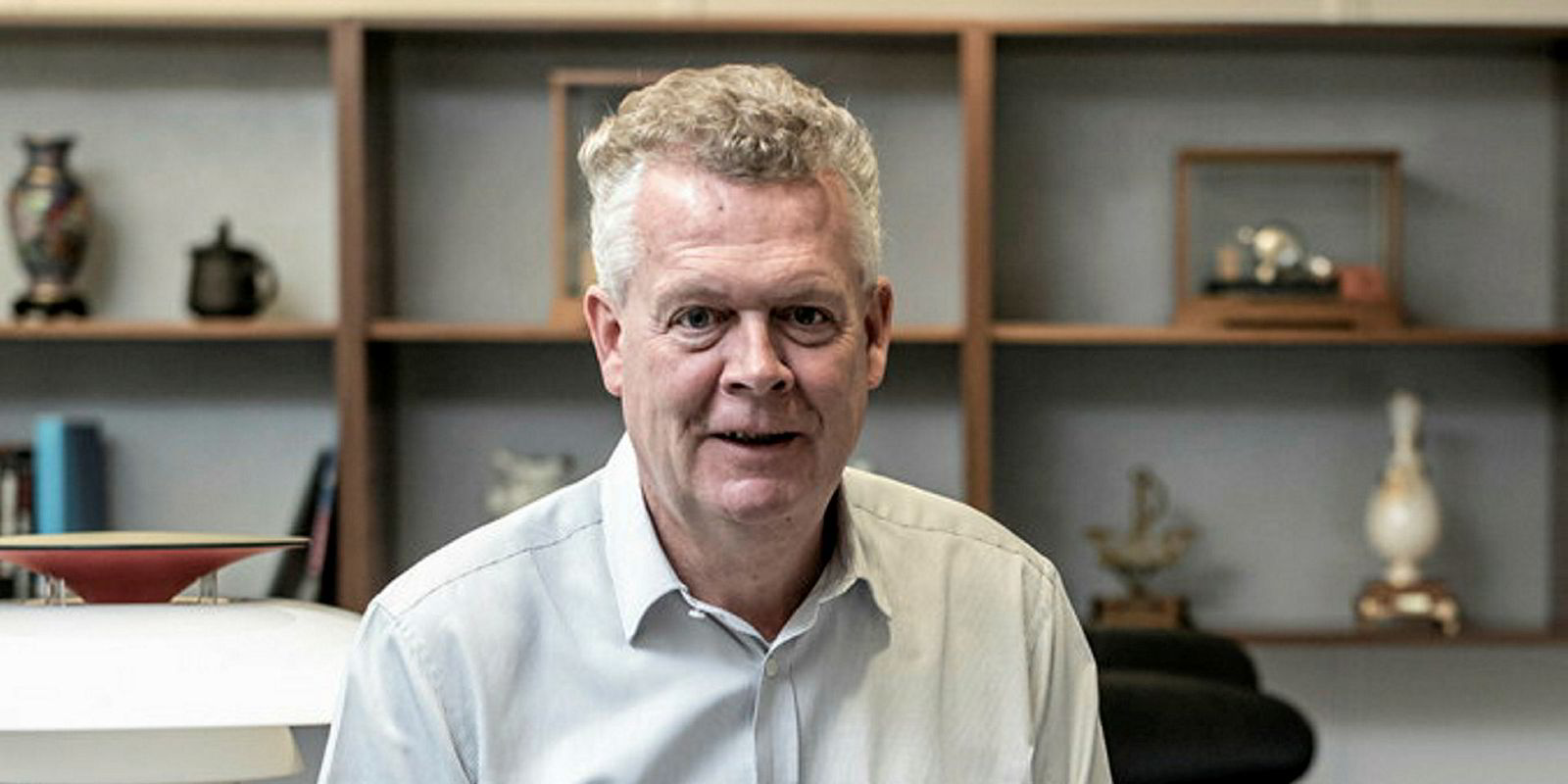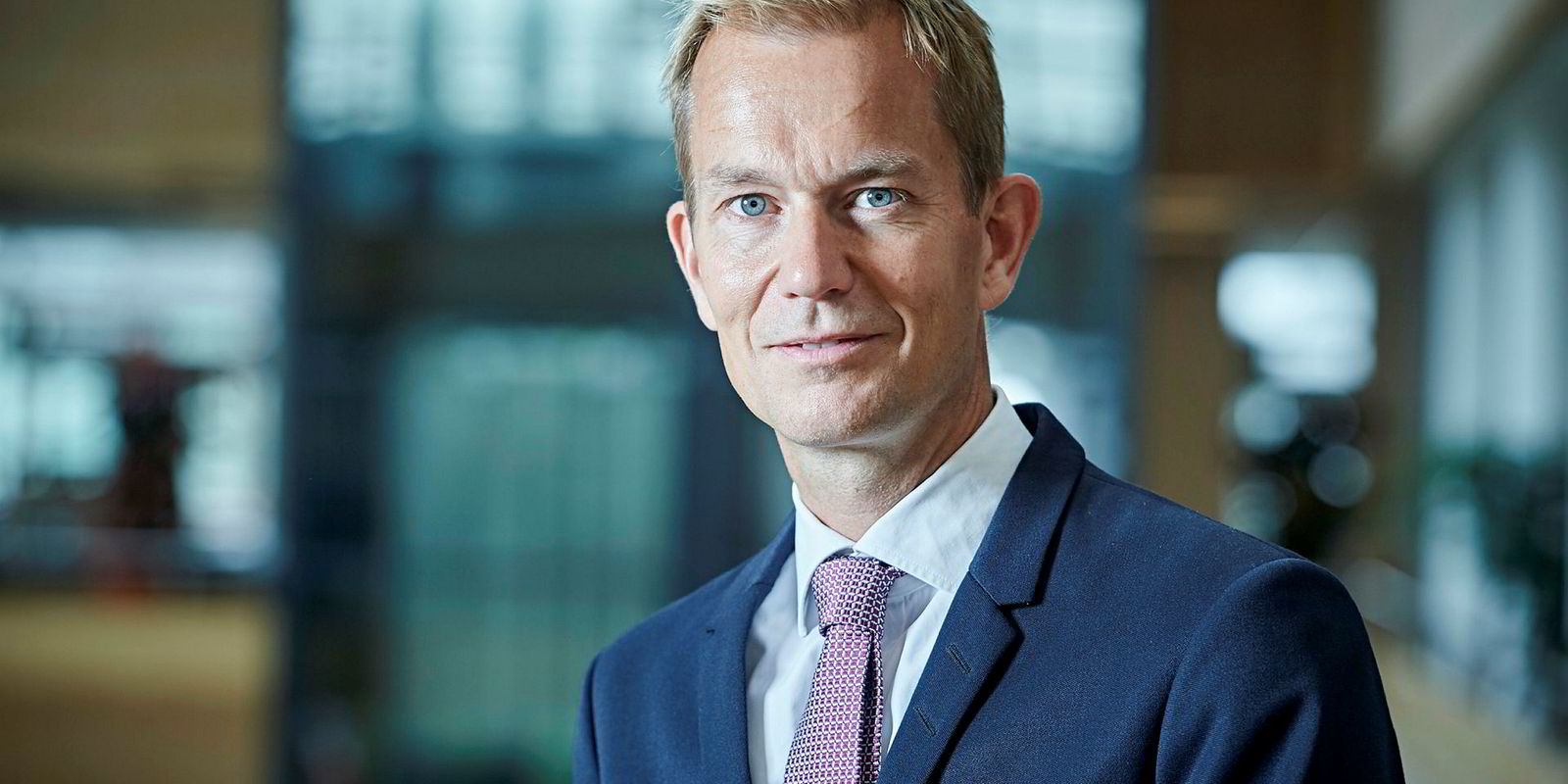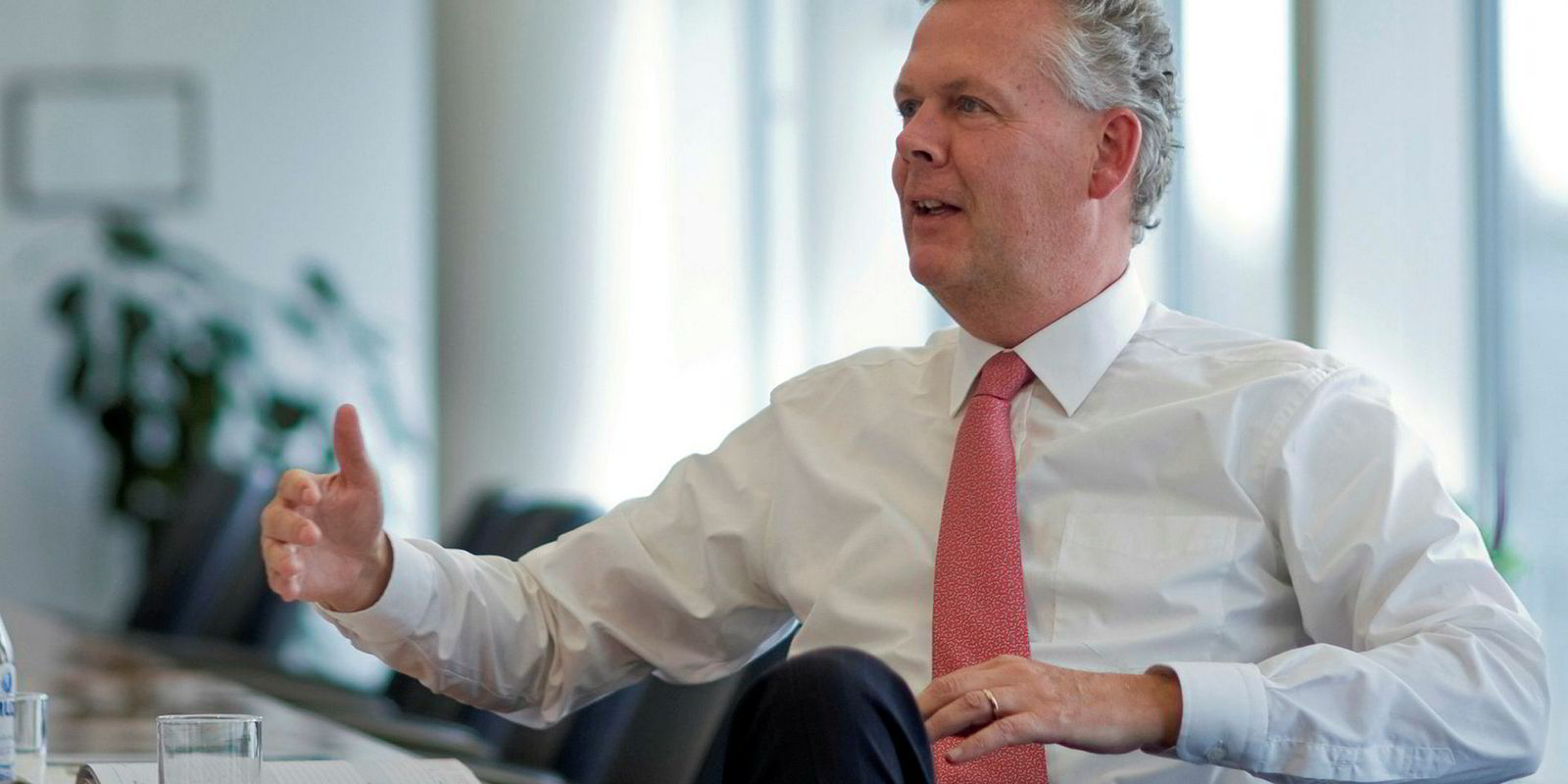Maersk Broker is keeping an eye out for further growth opportunities after recording what its top executives called satisfactory results in 2018.
A continuation of its developments in the dry cargo market and its greater involvement and prominence in finance and research remain on the agenda, its executive board of Anders Hald, Claes Devantier and Henrik Franck told TradeWinds.
Every baby grows. You just don’t want it to get too fat.
Claes Dvantier
The privately-owned brokerage reported a net profit of DKK 55m ($8.2m) in 2018, compared with DKK 44.9m in 2017, according to figures released this week.
Hald, chief executive of Maersk Broker, said 2018 showed satisfactory results, especially as the company had made several investments which were being digested.
“We expanded the dry cargo platform quite a lot after growing the offshore platform in 2017,” he said, noting the integration of both the new dry businesses and offshore firm Kennedy Marr took place in 2018.
Maersk Broker has been actively targeting growth in the dry cargo market for the past few years, with both investments and key hires, including Frank Kehlskov Mortensen who is now chief executive of Maersk Broker Bulk Chartering.
It took full control of Wonsild Dry in December, having first bought a strategic stake in the business back in 2015.
January saw Maersk Broker Bulk Chartering become a shareholder in NAODAN Chartering, a specialist in the West Coast of the USA, West Coast Canada and Alaska, which boosted the company’s presence in the Pacific.
Hald said after some years of spot focus in dry cargo, Maersk Broker was very active last year in the long-term charter market.
Devantier, senior vice president of Maersk Broker, has been the driving force behind the dry cargo growth and remains open to further activity.
“Every baby grows. You just don’t want it to get too fat,” he said. “We have a focus from handy to kamsarmax. We still have scope to grow so we can service our clients better.
“It’s not the aim to grow for the sake of growing. It would be something that can add tangible power, knowhow and market presence to our existing platform.
"There we have room for a little bit of further expansion.”
'Room to grow'
He added that transactions in the past few years had boosted the company’s presence in Copenhagen and key Asian hubs of Singapore and Hong Kong, while its coal joint venture in Bangkok had further strengthened the footprint in Asia.
Hald said the general philosophy across the company on expansion was to let business dictate expansion.
“We now have 19 offices and if concrete needs for additional service emerges and for that matter changes; we will be flexible,” he explained.
Devantier added with characteristic humour: “We are not a travel agent.”
He explained the company’s container broking division performed better than expected in 2018 and there were thoughts to expand company’s office in Hamburg.
“We were positively surprised by what happened last year and this year we were ahead of the curve again,” he said of the container business.

Finance and research have both been key focus areas at Maersk Broker of late, which the company instrumental in the launch of Navigare Capital, the diversified shipowner which is backed by major Danish pension funds.
“In advisory we basically have two separate legs now,” Hald explained. “One is the consultancy business, M&A and similar.
"The other is more capital driven. So far, we have focused quite a bit on Chinese leasing and other financing.
“We believe this combination of a broader scale advisory role, combined with a powerful research platform is going to be essential for us going forward.”
Digital eyes open
Hald also stressed the need to keep “our eyes open and our ears to the ground about the future requirements”, including digital opportunities.
Franck, chief operating officer of Maersk Broker, said digitalisation was a buzz word which covers a wide spectrum, but the company had zeroed in three headlines.
One is how to improve customer experience, with operational efficiency also a priority in a shipping industry he said undertook many tasks in a very time-consuming way.
“Then over time you will be able to develop new revenue streams,” he said.
“Where is that? If I knew right now, I would not tell you.
“Maybe we have some ideas, but if you combine shipbroking, research, advisory and consultancy and put all that into a melting pot something will come out of that if you add a little drop of digitalisation.”
Franck concluded: “If we look around everybody is doing their own thing [digitally] and you can get colour blind and speed blind looking at what the other people are doing. We are going to look at ourselves and build it in the way I just described.”
